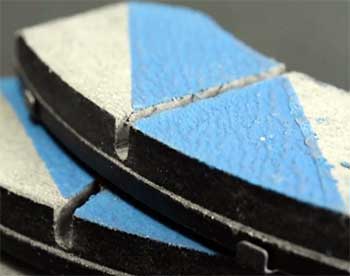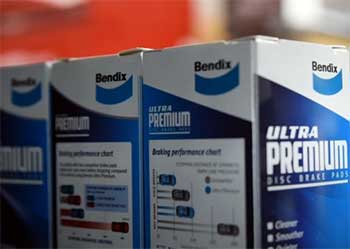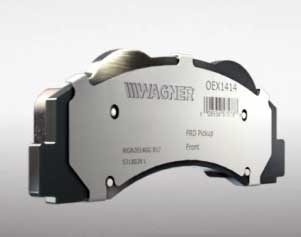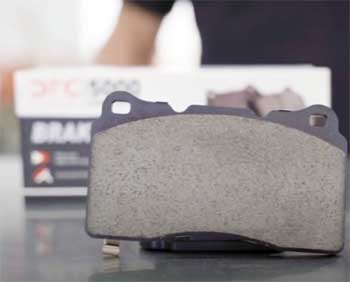If you’re like me, you take your vehicle’s braking system seriously. Nothing matters more than safety when you’re on the road, and quality brake pads are an essential part of that equation. That’s why I’m recommending Bendix brake pads.
They’re known for reliability, smooth performance, and durability, and they’ve consistently given me the confidence I need when driving. Whether you’re dealing with heavy traffic, mountainous terrain, or long commutes, Bendix brake pads offer the stopping power and comfort you need.
Why Bendix Brake Pads Are Worth Your Attention?

Now, let’s talk about why Bendix brake pads stand out from the crowd.
There are a lot of brake pad brands on the market, but not all brake pads are created equal.
Some offer great performance but wear out quickly, while others last long but create more noise or dust.
Over the years, I’ve tested various brands, but I keep coming back to Bendix.
Why?
The answer lies in the combination of quality, performance, and longevity that Bendix brings to the table.
One of the first things I noticed about Bendix brake pads is how well they balance these factors. From smooth braking to noise reduction and impressive durability, they’ve proven to be a solid investment for my vehicle.
Plus, they’re a great fit for a wide range of cars and trucks, so it doesn’t matter what you drive—Bendix likely has a solution that’ll suit your needs.
The Pros of Bendix Brake Pads

Let’s be honest: when it comes to brake pads, you’re looking for reliability first. Nobody wants brake fade or inconsistency when driving. Here’s what I’ve found to be the major pros of Bendix brake pads:
- Smooth and Quiet Braking: One thing I love about Bendix brake pads is how quiet they are. There’s no annoying squealing, which has been an issue with other brands I’ve tried. The noise-reduction technology seems to really work, which is a blessing when you’re stuck in stop-and-go traffic.
- Long-Lasting Durability: Compared to other brake pads I’ve tested, Bendix has held up the best. These pads are designed to last, even with aggressive driving or heavy loads. I’ve driven long distances and in various weather conditions, and the brake pads still perform like new.
- Reduced Brake Dust: Who doesn’t hate cleaning brake dust off their wheels? With Bendix, there’s significantly less dust than with other brands I’ve used. My wheels stay cleaner longer, which is a nice bonus.
- OEM Compatibility: If you’re worried about fitment, let me ease your mind. Bendix pads are often direct replacements for OEM parts. In my case, they fit perfectly without any hassle. If you’re driving a classic or specialized vehicle, Bendix likely has you covered.
- Enhanced Stopping Power: When I upgraded to Bendix, the stopping power was noticeably better. I felt more in control, especially during sudden stops or when carrying heavy loads. The difference is clear, and it’s exactly what you want when safety is a priority.
The Cons of Bendix Brake Pads
Even though I’m a big fan of Bendix brake pads, nothing is perfect. Here are a few things to consider:
- Slight Overhang on Some Models: One minor gripe I have is the slight overhang on certain pad models. In some cases, the top of the brake pad doesn’t align perfectly with the rotor. While this hasn’t affected performance in my experience, it does create an uneven wear pattern. Over time, this might lead to squealing, though it’s too early to tell with my current set.
- Price: Bendix brake pads aren’t the cheapest option out there. If you’re on a tight budget, you may find them a bit pricier than other brands. However, I firmly believe that you get what you pay for, and Bendix delivers quality that’s worth the investment.
- Availability: Depending on where you live, finding the right Bendix model might require a bit of searching. While they’re widely available online, local retailers may not always have the specific pad you need in stock. Plan ahead to avoid any frustration.
How To Maintain And Get The Most Out of Your Bendix Brake Pads?
Once you’ve installed your Bendix brake pads, proper maintenance will keep them in peak condition for as long as possible. Here’s what I’ve learned from years of experience:

- Regular Inspections: Don’t wait for your brake pads to wear down completely before replacing them. Make it a habit to inspect your brake pads regularly, especially if you’re noticing reduced braking power or noise. Catching wear early can prevent rotor damage.
- Break-in Procedure: To get the most out of your new Bendix pads, make sure to follow the recommended break-in procedure. After installation, avoid hard braking for the first 200 miles or so. This allows the pads to seat properly and ensures maximum performance.
- Check for Dust and Clean Regularly: While Bendix pads produce less brake dust, it’s still important to clean your wheels and brakes regularly. A buildup of dust can affect braking performance and accelerate pad wear. A quick wipe-down every few weeks can go a long way in extending the life of your brakes.
- Brake Fluid Matters: Don’t forget to check your brake fluid. Low or old brake fluid can negatively affect how your brakes feel and perform, regardless of how good your pads are. Keep it topped up and flush the system when necessary.
- Address Squeaks and Noises Early: If you hear any squealing or grinding, don’t ignore it. Sometimes, noises indicate that your pads aren’t seated correctly or that there’s something stuck between the pad and the rotor. Addressing the issue early can save you from bigger problems down the road.
Bendix Vs. Other Brands: A Comparison
Bendix isn’t the only name in the game, so how do they compare with other brake pad manufacturers? Let’s take a look:
- Bendix Vs. Wagner Brake Pads

Wagner is often seen as a budget-friendly choice for those looking to save a few bucks, and while they do provide decent performance, you’ll start to see why Bendix is a step up after a few miles.
Wagner brake pads tend to be a bit softer, which means they wear out faster—especially if you’re doing a lot of city driving or driving with heavy loads.
They’re also more prone to creating brake dust, which can be a hassle to clean off your wheels.
In terms of noise, Wagner pads are relatively quiet but don’t match the noise-reduction technology that Bendix offers. I found Bendix pads to be consistently smoother and quieter, especially during stop-and-go driving.
The real kicker, though, is longevity. While Wagner pads might be more affordable upfront, Bendix pads will last significantly longer, making them the more cost-effective option in the long run.
- Bendix Vs. Dynamic Friction Brake Pads

Dynamic Friction brake pads are another solid competitor, especially if you’re looking for good performance at a reasonable price.
They’re known for their stopping power and have a solid reputation for providing a good balance between performance and price.
I’ve used them on one of my vehicles before, and while I didn’t have any major complaints, they didn’t impress me quite as much as Bendix.
One thing Dynamic Friction does well is offering a range of pads suited for different driving styles, from daily commuting to more aggressive driving.
However, Bendix still has the edge when it comes to reducing noise and dust.
Dynamic Friction pads, while decent performers, tend to generate more brake dust than Bendix. I also found Bendix pads to offer better longevity, meaning fewer replacements and maintenance over time.
If you’re someone who values a clean, low-maintenance setup, Bendix would be my recommendation. But if you’re after strong performance at a slightly lower price, Dynamic Friction pads might be worth considering.
- Bendix Vs. Akebono Brake Pads

Akebono is another brand that’s well-known for producing high-quality brake pads, especially in the realm of low-dust options. In fact, Akebono pads are some of the best when it comes to minimizing brake dust.
If keeping your wheels clean is a top priority for you, Akebono might seem like a tempting choice.
However, when it comes to stopping power, I’ve found that Bendix outperforms Akebono, especially in more demanding conditions. Whether I’m hauling cargo or taking my vehicle through hilly terrain, Bendix pads give me more confidence and control.
Akebono pads are great for regular, daily driving, but for more aggressive or high-performance situations, Bendix takes the cake.
One area where Akebono falls short compared to Bendix is noise reduction. While Akebono pads are generally quiet, I’ve found Bendix to be consistently quieter, even after months of use.
Plus, Bendix tends to last longer under the same driving conditions, so if you’re looking for something that will go the distance, Bendix is my top pick.
Frequently Asked Questions (FAQ)
Absolutely. Bendix brake pads are some of the best in the market when it comes to reliability, performance, and durability. From my experience, they offer a great balance of stopping power and long-lasting wear, making them a solid choice for both daily drivers and performance enthusiasts.
There are several top-tier brake pad brands, and Bendix is definitely one of them. Other notable brands include Bosch, Akebono, EBC, and Wagner. Each brand has its strengths, but if you’re looking for a balance of performance, longevity, and minimal brake dust, Bendix is hard to beat.
Bendix is part of the expansive brake products group under the MAT Holdings Inc. umbrella. They’ve been around for decades and have built a strong reputation for quality in both the aftermarket and OEM segments.
The lifespan of Bendix brake pads depends on several factors, including driving habits and conditions. On average, they last between 30,000 to 70,000 miles. In my experience, they tend to outlast many competing brands under similar conditions, which makes them a smart choice for those who don’t want to replace pads frequently.
Wrapping Up
In summary, Bendix brake pads are a top-tier choice for anyone looking for high-quality, long-lasting, and quiet brake pads. They strike the perfect balance between performance and durability, making them ideal for a wide range of vehicles.
If you’re serious about safety and performance, I can’t recommend Bendix brake pads enough.

